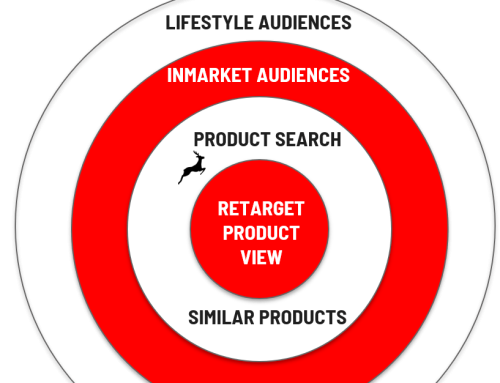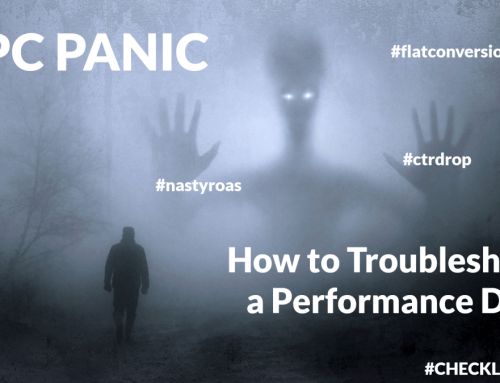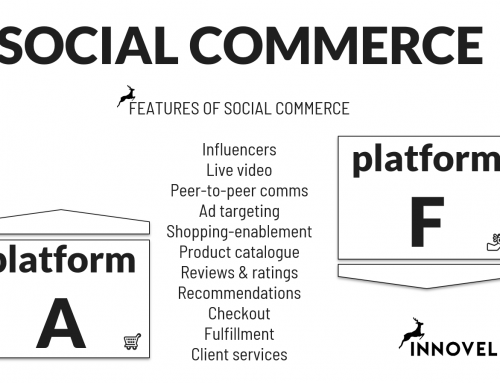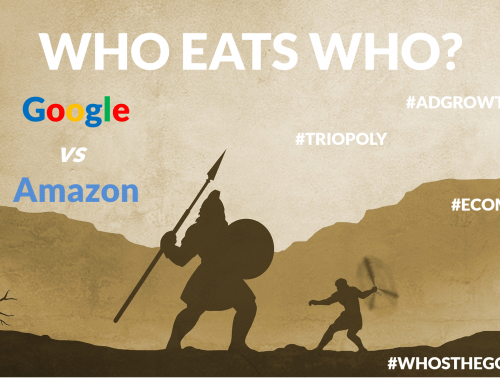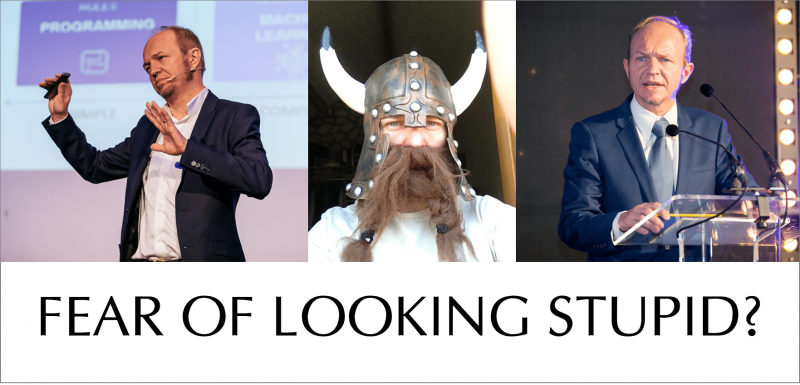
I wonder if I am actually a Digital Native? I learned to code when the foundations for the digital economy were laid and I was into the Internet as soon as it was out. I haven’t watched TV since approximately the day the world wide web was launched. I was fairly early on Twitter but did resist quite a long time before opening a Facebook account. I feel really digitally native. And when I was a teenager, I definitely had FOMO (Fear of Missing Out). I even wrote the very definition of it in my little notebook: “So many express trains I have to catch”. The stress of youth in the wide world of wonders.
According to the demographics, however, my children fit the definition of the Digital Native better than I do.
In recent years the term FOMO (fear of missing out) has become quite popular and has even been added to dictionaries. It is usually connected with the always-on generation of Digital Natives – you know – the generation that were raised on Youtube tutorials and who eat Instagram for breakfast. There is actually scientific research showing that the effect of social media on your brain is similar to that of drugs, alcohol and cigarettes. How cool is that? – drugs that don’t hurt your body, only your brain, available day and night.
But social media also has another effect on people. Have you noticed how everyone is always happy and good looking on social media? I reconnected with a friend IRL (in real life) a while back and told him how happy I was for him because he always seemed to be having a great time. And then he said “Ah, you know, a divorce is never fun”. He didn’t even know I didn’t know. When his wife suddenly changed last name on Facebook, that was a big event as well. Most people had no clue. And I count them both as friends. Sort of. Well more than Facebook friends at least…
I think most users of social media feel that pressure of having to look good, be seen with the right people, do the right activities. Do we have any social media burn-outs yet? I think they are on their way for those who are in always-on mode.
And then there are those who are not on all the time. The you’s and me’s. Well, I am actually on quite regularly in my efforts to build awareness for the Search Strategies Report I published, but it just means I have the FOLS more often than most. We are the ones who are a little reluctant to show our faces, our bodies, our kids, our house, our car. When you then, for some reason – personal or professional – feel that you must post on social media, it suddenly strikes you. The Fear of Looking Stupid. FOLS-struck. I have known for a long time that I have it.
And then I recently discovered that FOLS is not just something I have. I think this was in a discussion on Twitter with a new friend who had acquired some internet fame thanks to videos he made and who told about the number of rounds of his living room he would do before going in front of the camera. He is definitely part of this other group of digital natives that are really uncomfortable in front of a screen and seeing themselves on camera. Not that you can see it when he is live of course… In that discussion I suggested he maybe was suffering from FOLS as well. I told him the solution was definitely Nike. I also shared – and regretted afterwards – how stupid, old and with a deformed face, I look when I do video reports. Aargh.
I googled the term afterwards, discovered that Fear of Looking Stupid was real although I thought I had just invented it. Other people talking about FOLS, the younger brother of Imposter Syndrome. I also started noticing discussions on the more professional network, LinkedIn, between people who were surely less digitally native than myself asking how to expand your network on social networks and getting the same range of ever-lasting by-the-book good-and-friendly advice from well-meaning peers: publish outstanding content, share engaging concepts, comment and interact in relevant discussions. “Yes, but what if I look totally stupid when I ask a question?”, what if people I know suddenly realize how Human I am, despite my SuperHero avatar?
The answer is Nike again, Just do it.
The thing is we have an invisible guardian angel. It is the social media algorithm itself. It will come to our rescue whenever we look moderately stupid or give silly or uninteresting comments. When nobody reacts to our publications, the algorithm will penalize that content. Uninteresting. Not worth sharing further. Not monetizable via advertising as people don’t care. And therefore nobody sees it. My new friend in that twitter discussion ignored my last comment – thank heaven – and my silly message just drowned in the vast ocean of never-seen content on the internet thanks to my guardian angel.
People don’t talk so much about Fear of Looking Stupid – do you know why? Well, because they are afraid they will look stupid when they do. So really, be fearless, most of what you publish on the internet will never be seen and most of your comments will not generate any reaction. Just as most web pages are never visited and most blog posts never read. There are very few exceptions: if you have more sworn enemies than loyal friends or prone strongly controversial standpoints. In those cases, you can become infamous really quickly as your smallest false step will be detected and bloated up by those who don’t appreciate you. But frankly, that is the case for a small minority of people and you are surely not one of them, so walk without fear, express your opinions, they are worth it! Share your ideas, exchange with people, like things you like and ask questions when in doubt.
Almost like in real life.


